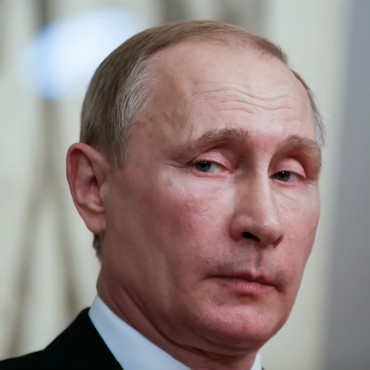Treasury: No Russia sanctions lifted on U.S. tech
While a Feb. 2 change to licensing rules to allow certain U.S. tech exports to Russia raised hackles among opponents of President Trump, a Treasury official said the policy was in the works for a month in response to complaints from U.S. businesses.

The Treasury Department pushed back on new reports that a change to IT export control policy was a giveaway to Russia.
The Treasury Department has issued a technical correction to Obama administration sanctions against Russian intelligence that now allows American exporters to continue legal IT commerce with Russia, according to a senior Treasury official speaking to reporters on background.
On Dec. 29, 2016, President Barack Obama announced sanctions against two of Russia’s intelligence agencies -- the FSB and GRU -- four individuals and three companies involved in Russia’s cyber operations carried out to influence the 2016 presidential election.
The next day, the official said, Treasury started receiving complaints from U.S. businesses that the sanctions were preventing them from exporting approved IT products to Russia.
Russia’s FSB is responsible for issuing permits and licenses to foreign companies that export to Russia products such as cellphones or tablets that are not subject to U.S. sanctions. As a result of the Dec. 29, sanctions, companies were barred from interacting with the FSB and paying fees for legitimate commerce.
Treasury began consultations with the private sector to understand the extent of the impact of the sanctions and to determine what technical changes could be made to allow legal commerce without undermining the sanctions.
The general license issued by the Treasury Department on Feb. 2 again allows exporters to engage with the FSB for “requesting, receiving, utilizing, paying for, or dealing in licenses, permits, certifications, or notifications,” and the payment of fees of up to $5,000 per company, per year to the FSB.
The license states it “does not authorize the exportation, reexportation, or provision of goods or technology to or on behalf of the Federal Security Service.” The license also explicitly states that it does not authorize exports to Crimea.
The Treasury official said the action was entirely in reaction to complaints by the private sector, and is not the first time Treasury has had to issue technical corrections to sanctions.
Kevin Wolf, who served as assistant secretary of commerce for export administration from 2010 to 2017 and focused on export control regulations and commercial defense trade, concurred. This kind of adjustment is minor, practical and not uncommon, he told FCW, adding, “no one should make a big deal of it.”
The Treasury license initially set off a firestorm of reaction, with some characterizing it as the Trump administration lifting sanctions on the FSB.
House Minority Leader Nancy Pelosi issued a fiery press release condemning President Trump, saying he was giving President Putin’s “thugs” a “thank you present.”
Congressional Democrats have been calling for an independent investigation into Russia’s campaign to influence the U.S. election, and on Feb. 1, six ranking House Democrats sent a letter to the Pentagon requesting an investigation into National Security Advisor Michael Flynn’s ties to Russia.
The letter states that Flynn might have violated the constitution by accepting payment to attend a gala hosted by Russia Today, which the U.S. intelligence community calls a Russian propaganda outlet.
“It is extremely concerning that General Flynn chose to accept payment for appearing at a gala hosted by the propaganda arm of the Russian government, which attacked the United States in an effort to undermine our election,” the letter states.
At a House Oversight and Government Reform Committee Feb. 2 hearing on reforms to the Office of Personnel Management’s security clearance process, Democrats reiterated their call for investigations into Flynn and other Trump advisors and appointees for possible ties to Russia.





